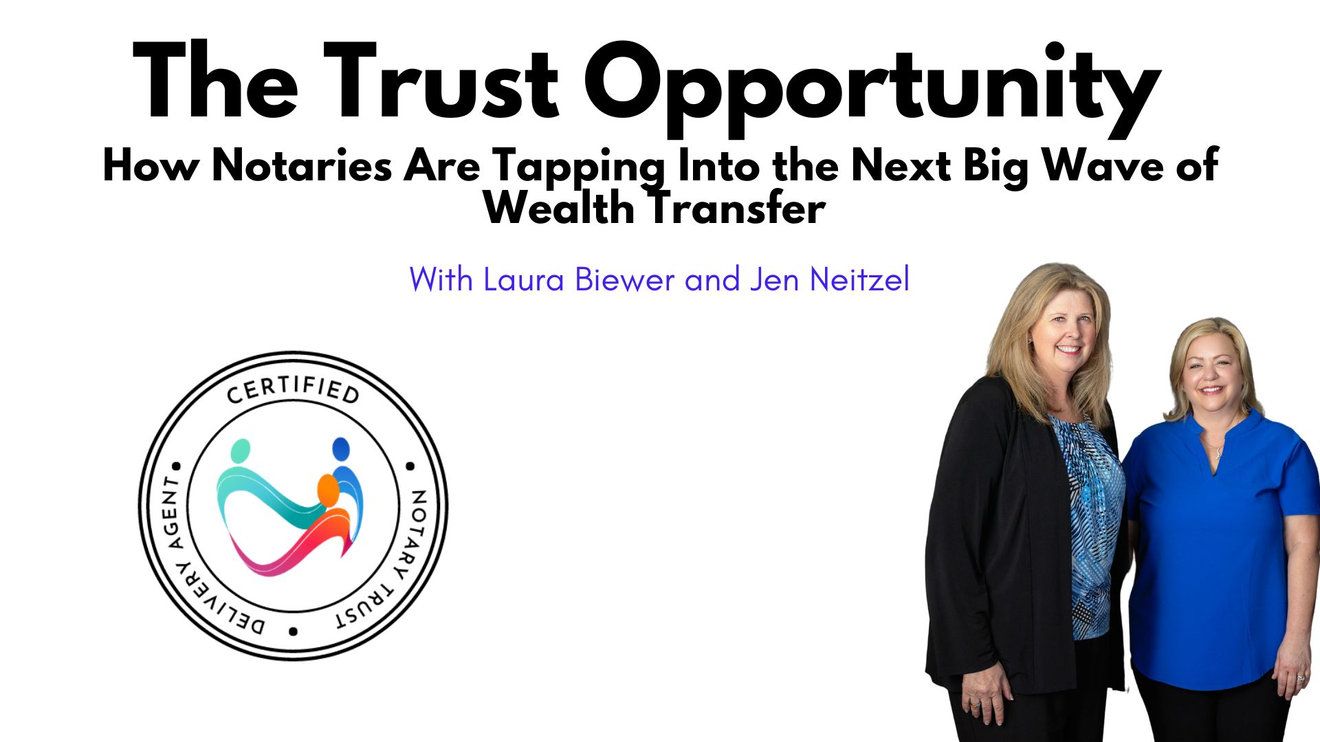Digital Assets... Do I Have Any?
Hi, this is Laura with At Your Service Mobile Notary and CoachMeLaura.com.
I noticed something recently and thought this would be a good thing to share with you. I want to share something I learned about digital assets and the challenge to manage them in case of incapacity or death.
But first, what is a digital asset?
So we might think of somebody's assets as an estate, and we think of our bank accounts, and we think of our real estate, and we might think of our business interests, and all the personal belongings that are in our house. However, most of us are impacted by, or utilize, information that is stored in electronic form.
So digital assets have changed the way we plan and manage what we own! As usual, technology moves faster than the laws to manage it! So a digital asset means ANY type of stored information on ANY kind of device. It includes content that is uploaded to the internet.
For instance, an internet domain name is an electronic asset. Your commercial loyalty points for awards, like airline points, frequent flyer miles or air hotel points. Accumulated assets for internet games. These are also electronic or digital property. Bitcoin is digital property. And even those that have no economic value, like photographs that we upload on Facebook, Twitter, and Flicker. The YouTube videos we create. All of those are digital assets.
Now, internet providers who might be called custodians like Facebook and Twitter and the like - they may have their own policy about what happens with what you put there cause that's their real estate, not yours and how that can be transferred or not. And you'll probably find that under their terms of service. It's just that how many of us really read that?
I want you to know there could be some language in there that says they can't be transferred to your heirs. So there've been a couple of acts that have been promulgated. The SCA, which is the Stored Communications Act - that came out in the late eighties. This led to The Revised Uniform Fiduciary Access to Digital Assets Act (RUFADAA). (That was a lot!) But only 34 States had ratified or adopted that (and as of December 2019, 41 states have done so (see LINK for details as to which states have adopted). We've got lots of States still hanging out there in limbo.
So what do probate courts and executors and successor trustees who have to administer somebody's estate do when the internet provider has latitude. They may think that 'I don't need to cooperate!' Well, here are some things to think about.
One is to have some kind of a legally executed document that has specific intent as the owner, to grant partial or full access to whoever it is you're naming as your agents.
The three primary ways to try to manage this right now are:
1. Name a digital executor in case of death.
2. A specific clause in your power of attorney that grants the agent access to your digital assets.
3. Assign ownership of your digital assets to the trust so that your successor trustee can manage that when you're not here anymore.
Now, although this doesn't guarantee you'll get full cooperation until we have a uniform law for all 50 States, it's probably the best we can do. So make sure if you already have a will or living trust or a power of attorney that it's been updated to include the language that will provide lawful consent under that SCA and/or RUFADAA so that you have a way to ensure that people you've asked to manage your assets when you're gone have a way to do so.
Now I have a final reminder - and that is, remember, I'm not an attorney so I cannot tell you if this impacts you directly. However, I do want to say that if you are going to get a living trust, then that would be a great question to ask your attorney. If you're planning to get a power of attorney or healthcare directive, then make sure those clauses are part of the document. A lot of us use what's called statutory wording and it may or may not contain it. So you want to take a look at that document carefully to ensure that it offers that kind of protection as well.
Now, I hope you learned something new today! I certainly enjoyed sharing it with you!
Until the next time, be good!
Laura



